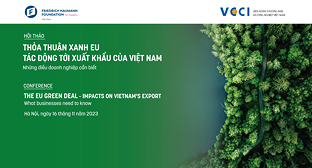Review mechanisms under Countervailing Investigation
16/12/2022 11:28
The SCM Agreement recognizes the following three types of reviews of CVD measures:
- The investigating Authority is required to carry out promptly and in accelerated manner reviews requested by exporters which are subject to a definitive countervailing duty, but which were not actually investigated for reasons other than for refusal to cooperate
- Definitive countervailing duties shall normally expire after five years from their imposition (or the period of notification), unless the domestic industry asks for a review within a reasonable period of time preceding the expiry, requesting that the expiry of the duty would likely to lead to continuation or recurrence of subsidization and injury. During the period of duty as notified interested parties may request the authorities to examine whether the continued imposition of the duty is necessary to offset subsidization or whether the injury would be likely to continue or recur if the duty were removed or varied, or both. The duty may remain in force pending the outcome of such a review
- The Members to who adopt countervailing duty legislation, are obligated to maintain independent procedures for the purpose of prompt review of final and determinations. The Customs, Excise and Service Tax Appellate Tribunal (CESTAT) in India is the independent judicial forum to consider the appeals against the final findings issued by DGTR
Các tin khác
- Major stages of the anti-dumping investigation process (17/12/2022)
- Review mechanisms under Anti-Dumping Investigation (16/12/2022)
- Stages of countervailing investigation process (16/12/2022)
- Stages of Safeguard investigation process (16/12/2022)
- Review mechanisms under Safeguard Measure (16/12/2022)
 Home
Home
 About Us
About Us




















